Global Business Dining Etiquette: Rules to Remember


As technology continues to make its way into every aspect of our lives, the world seems to be getting a bit smaller – in a good way! It is much more common today to have business relationships with people around the globe, and you may even have a few employees who work remotely from another country. Eventually you will probably meet with potential international clients or prospects, and will possibly dine with them. Whether you are the invited guest, or you invite others to dine with you, having mastered polite table manners is always appreciated, and makes the entire experience better for everyone.
However, what many people don’t know is that table manners vary greatly across cultures. While there are general rules that are followed globally such as not talking with your mouth full, or pointing utensils at other patrons, there are many conflicting “rules” as well. For example, in France tearing bread directly from the loaf is completely acceptable, but may get you strange glares if you tried to do the same in Spain. Splitting the check is often quite common here in the states, but attempting to do so in Europe could unintentionally offend your host. Take a look at our short guide, and take special attention to any countries you plan to travel to in the future. You’ll be a pro at cultural dining in no time.
France
The French are known for their love and appreciation of food, as well as their politeness while dining, which is of high regard in their culture. If you are ever in question of your actions, look to your host for cues. Begin eating after the host, and stop when the host stops as well. It is also good to know that many stores in France close from 12pm to 3pm during the normal lunchtime. Dinner often begins very late, around 9pm and can go on for a few hours. Dining in France is considered an experience, and there may be time between courses. Here are some additional tips for dining in France.
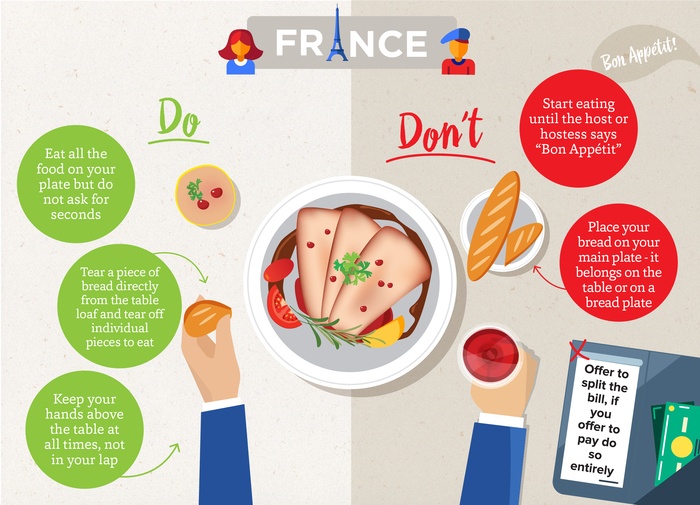
Japan
The Japanese people value politeness and harmony, and also good manners. One of the more conservative cultures, traditional Japanese dining has a few rules you may not be familiar with. Starting with the utensils. If you’re planning to visit Japan or will be hosting Japanese guests, practice using chopsticks before your business dinner. Here are some tips to help. Also, be sure to bring your business cards to dinner, they are a necessity when conducting business over a meal. Hand your card with both hands to your host, and when you receive their card be sure to study it carefully out of respect.
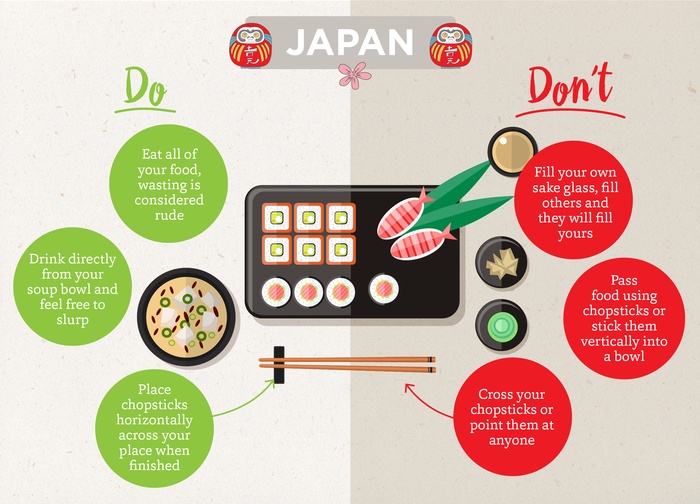
Sweden
Unlike other European countries, Sweden business meetings begin at the agreed upon time, and it is considered extremely rude to be late or early. Swedes value moderation and simplicity, and strong emotions are not often well-received in public. They also value appreciation and honesty in conversation. During a business lunch, expect the topic of the meeting to come up quickly, but elaborate sales pitches are strongly discouraged.
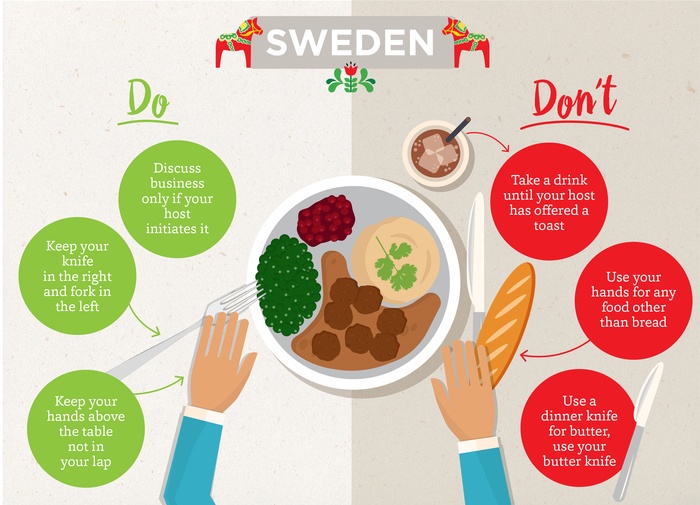
United Kingdom
Comprised of four countries, Ireland, England, Scotland and Wales, the members of the United Kingdom are known for exhibiting more reserved behavior and their appreciation of following protocol. When meeting for dinner it is acceptable to arrive 10-15 minutes late, however if meeting at a restaurant arriving on time is best. You will most likely be greeted with a firm handshake upon arriving and departing. Be sure to address others using Ms, Mrs, or Mr until invited to use their first name.
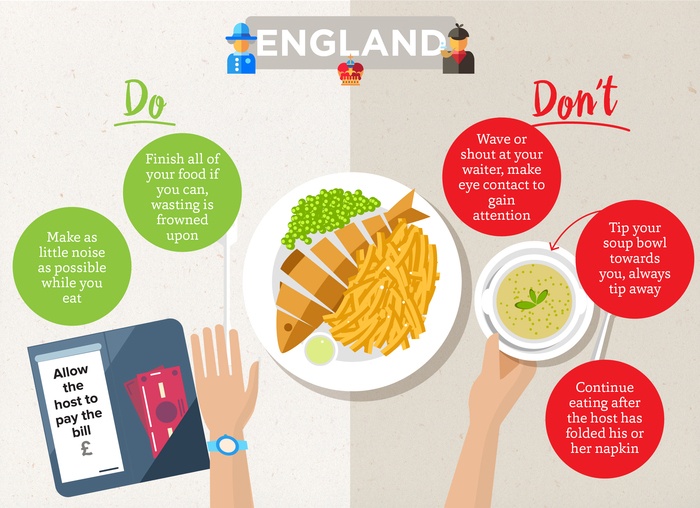
Spain
The Spanish are known for being a little more relaxed with their dining experience. They are also known for their lively conversations, so hand gestures and passionate discussions are welcome! It is also good to know that many meals are served family style or tapas-style, lots of little plates meant to share. Your bill will also not come to you until you ask for it, but if you do ask you should probably pay it too. The Spanish eat dinner very late by American standards, often between 9:00pm and midnight. Keep this in mind if suggesting a business dinner. Lunch is often served between 1:30 and 3:30pm.
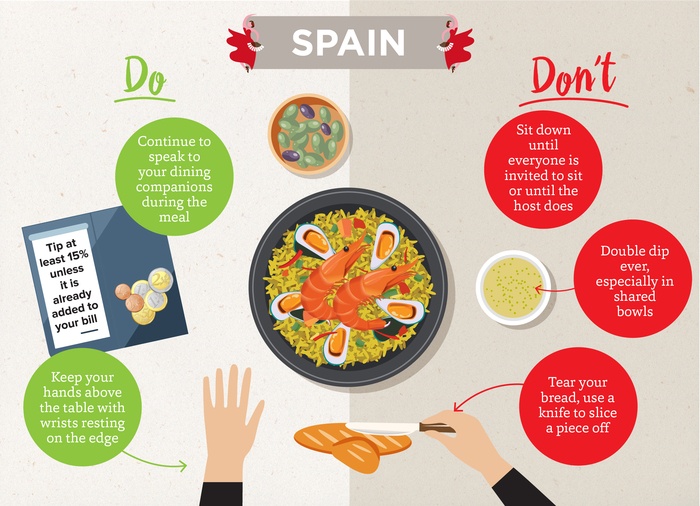
While agreeing to attend a business dinner while traveling abroad or even here in the states can be stressful, look at it as a way to experience a new culture, and to broaden your horizons. Even if you make a mistake or two, everyone understands you are learning, it’s more about making the effort to respect a new culture than to get it down perfectly the first time. And even if you’re not dining with global guests, it’s always a good idea to practice good table manners, especially when your impression counts.
Sources:
- https://www.themuse.com/advice/business-dinner-abroad-a-crash-course-in-japanese-dining-etiquette
- http://www.kwintessential.co.uk/resources/global-etiquette/sweden.html
- http://goasia.about.com/od/Customs-and-Traditions/a/Japanese-Dining-Etiquette.htm
- http://www.etiquettescholar.com/dining_etiquette/table-etiquette/europe-m_table_manners/spanish.html
